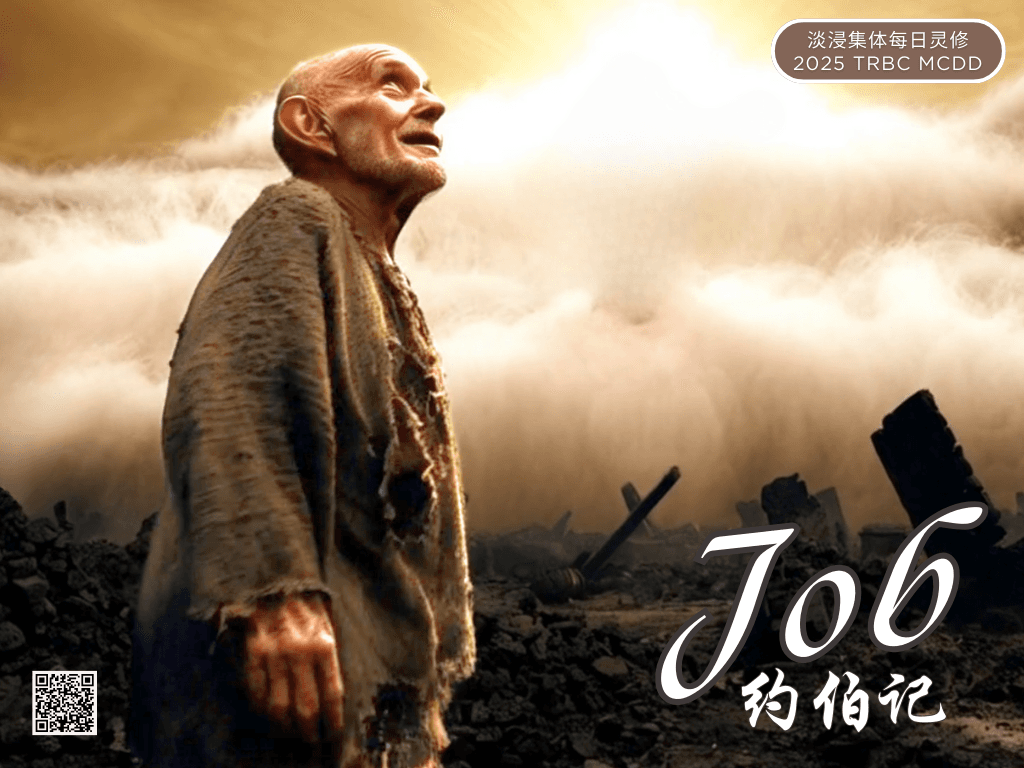Last 5 Days

Ate more salt than rice

There is a Cantonese saying that sometime, a senior will tell a youngster, “I have eaten more salt than you have rice.” It means that since the senior has lived much longer, he would probably have endured hardship and seen more of life and thus, he would definitely have more experiences than the younger one. There is definitely much wisdom here and this saying has been proven repeatedly. In this chapter, we get to understand what constitutes a man to live and do well in life is not only attributed to accumulated experiences alone. The reverential fear a person has for God is the most important.
Three cycles of dialogue by the three friends of Job (Eliphaz, Bildad and Zophar) who repeatedly tried to accuse Job that he had sinned and thus received God’s judgment. A fourth friend by the name of Elihu entered the picture. As Elihu was much younger compared to the other three friends, he did not join but was listening to their entire conversation until now (v4, 6).
Verse 1 writes that because Job was righteous in his own eyes, the three friends stopped talking to him. The first description that the readers get to know about Elihu from verses 2-5 is that he is a man who burned with anger. The phrase “burned with anger” appears four times in verses 2 (twice), 3 and 5. The first two occasions appear when Elihu was angry with Job for justifying himself and not God (v2b). This is precisely what is being said of him in verse 1 that he was righteous in his own eyes. Elihu was also angry with Job’s three friends because they could not determine specifically and tell Job what went wrong with his understanding about God.
Though Elihu is young, he ascribes glory to God in that it is He who enables him to understand what Job is going through (32:8, 18; 33:4). On one hand, he validated Job (33:8-11) with what Job said that he was pure and without iniquity. But Job wondered about the reason for such calamities to be happening to him. Elihu then corrected Job (33:12-13) that he was wrong to question God for not having wisdom that was above man by telling him that God is greater than man. Elihu also told Job to stop talking and listen to what he was about to say in the next few chapters (33:31-33).
My brothers and sisters, what can we learn about Elihu in contrast to Job and the other three friends? Prov 1:7 (NIV) says, “The fear of the Lord is the beginning of knowledge, but fools despise wisdom and instruction.” Though Elihu is young in age compared to Job and the others, his fear and wisdom from God enabled him to read and interpret what was happening to Job. Let us be encouraged and trust God to raise up more “Elihu”s among us from our youth and young adult ministry (YAY).
Prayer
Dear God, It is very encouraging to learn about the good example of Elihu that you have raised to speak the truth into the lives of Job and his friends. The situation that Job faced is by no means easy for people in his lives to encourage him. But Elihu came into the scene and what he says in the next few chapters is profound wisdom that only you have endowed him. It is our prayer, O God that you will raise up among us in the church, especially from the YAY ministry who can be like Elihu who know you reverentially and dare to obey your will against all odds. We pray that these spiritual qualities will characterize the leaders of our church in the immediate future. We pray in Jesus’ name. Amen.
